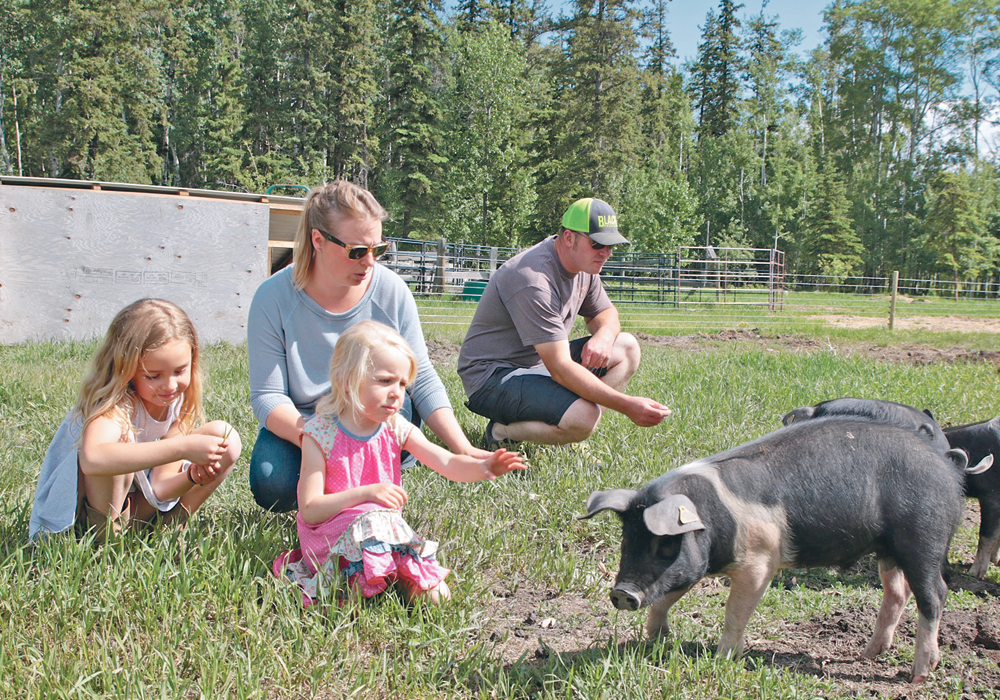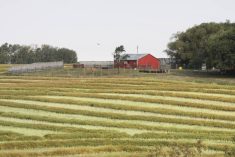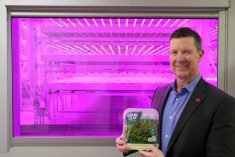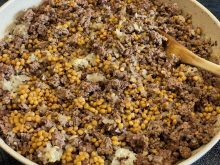On the Farm: Michelle and Gaston are first generation farmers who sell poultry, pork and beef directly to consumers
ROSE PRAIRIE, B.C. — Michelle and Gaston Schaeffer never grew up on a family farm, but that didn’t stop them from pursuing their passion of producing food.
At Whiskey Creek Ranch in Rose Prairie, the Schaeffers produce pasture-raised poultry and pork, as well as beef that’s raised and finished on grass. They implement regenerative practices to improve their land.
“Our goal is animal welfare and the local food economy,” said Michelle while discussing the couple’s management practices on the farm. “It’s been really neat so far, though it has come with its challenges.”
Read Also

Nutritious pork packed with vitamins, essential minerals
Recipes for pork
The couple began farming formally in 2015, selling all of their products directly to consumers online or at markets.
Michelle said they had always grown food for themselves, but when the oil and gas economy tanked, they decided to diversify, expanding into small-scale production.
“We didn’t want to have all of our eggs in one basket,” she said. “We wanted to see if we could make a living out of something we actually enjoy doing.”
By not growing up on a farm, Gaston said, it allowed them to keep an open mind with management practices.
He said it’s one of the reasons why they turned to regenerative agriculture.
“We were primed for it because there was no pre-conceived way of doing things,” he said. “We were open like a clean slate.”
They both have environmental professions and the farm is small, which he said also aligns well with regenerative practices.
“It supports the smaller scale and our lifestyle,” he said. “When you start looking at the benefits for this land and surrounding land, it’s really a neat concept.”
During the interview, the Schaeffers showed how they managed their livestock.
Their chickens and turkeys graze through what’s called mobile tractor techniques. They eat grass and mineral supplements in a coop that’s moved every day.
It allows them to fertilize the soil, spread cow manure and eat insects, essentially improving the soil.
“It used to be bare here when we bought the land,” said Gaston, pointing to the pasture. “We move them through there and in about three weeks it’s green from the nitrogen load. It’s pretty incredible.”
With their hogs, they bring in heritage breed piglets, raising them until they are at butcher weight.
The pigs get to freely roam in a large fenced-in area and are rotated every 21 days or so, depending on what the pasture can support. Their diet consists of grass, hay, bugs, roots, shoots and apples.
“Our butcher has told us it’s the nicest meat he’s ever cut, which is really good to hear,” Michelle said.
With their cattle, they are intensively grazed, moving every two to three days.
The cow herd is small, but they plan to expand it at a pace that they can manage and is financially sustainable.
“We’re not bringing in a lot of extra animals at this point,” Michelle said. “We’re doing just what we can handle, keeping the heifers and shipping the steers.”
Since 2015, the Schaeffers have been both rewarded and challenged.
Last year, the bear problem made production particularly tough.
“It was like over half of our income was lost in one night,” Michelle said. “Those are hard setbacks, but what is encouraging is the growing number of people supporting us. It’s keeping us going and producing more and more.”
They have two daughters: Heidi, 4, and Mikayla, 7.
They hope in the future they will be able to have only one off-farm income to support the family, which would allow them to further grow.
“Our motivator right now is to keep growing,” Michelle said. “Farming can be tough. You can have a bear come in and kill 12 pigs in one night, but we’re doing it because we love it and because of the response we are getting.”
As well, they hope other small farms in the region continue to grow. Michelle said it would support more smaller businesses and strengthen the community.
“As we all continue to support each other, going to the local butcher or having more consumers buy directly from all of us, it’s going to create a micro-economy, which will benefit everyone.”


















